

New name, new orientation
In 2011, the Max Planck Institute for Metals Research, founded in 1921, is renamed the “MPI for Intelligent Systems”. The existing location in Stuttgart is joined by another in Tübingen. The newly reoriented Institute forms the nucleus of Cyber Valley, a research network founded in 2016 which is quickly developing into one of Europe’s most successful AI research hubs. The Institute’s research activities and the support it provides for junior scientists are strengthened by the close ties with the Universities of Stuttgart and Tübingen and the partnerships established with international higher education institutions. In 2018, the MPI for Intelligent Systems joins forces with other AI research locations to form the European research network ELLIS.

2011: Institute renamed the MPI for Intelligent Systems (MPI-IS)
2015: Establishment of Max Planck ETH Center for Learning Systems (CLS)
2016: Establishment of Cyber Valley research network
2017: Inauguration of International Max Planck Research School for Intelligent Systems (IMPRS-IS); new Institute building opens in Tübingen
2018: Establishment of European Laboratory for Learning and Intelligent Systems (ELLIS) research network
2021: 10th/100th anniversary
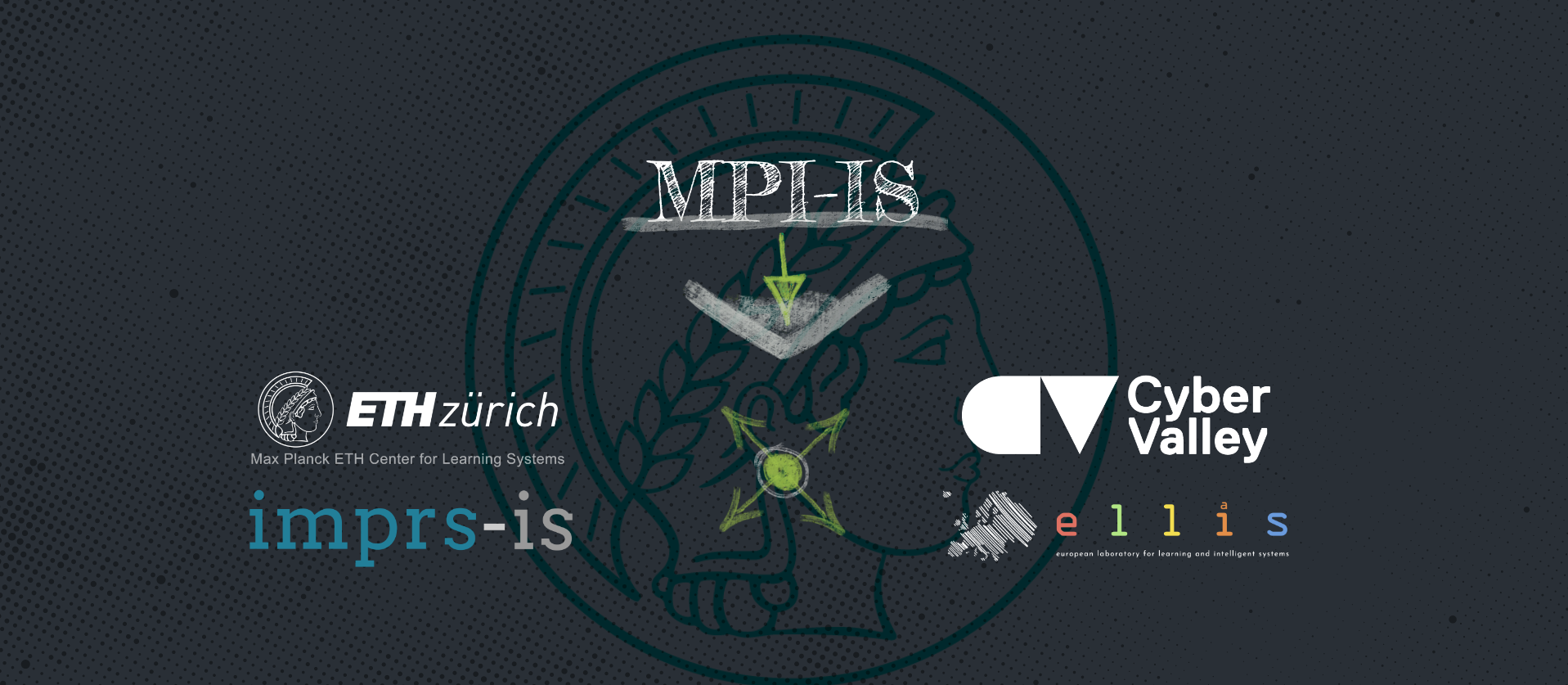
From materials to autonomous systems
In 2011, the Max Planck Institute for Intelligent Systems (MPI-IS) is formed by transforming the MPI for Metals Research (MPI-MF), which was founded 90 years earlier. In 2009, the continued existence of this long-established major research institution is in doubt.
Four of the Directors’ posts are vacant, and its future orientation is unclear. This is the situation in January 2009, when the MPI-MF’s Acting Director Joachim Spatz attends a symposium on autonomous systems in the neighbouring city of Tübingen. Here he meets Bernhard Schölkopf, who has been the Director of the Empirical Inference Department at the MPI for Biological Cybernetics since 2001. Together with other specialists, they discuss the formation of a new MPI. The initial idea is to establish it in Stuttgart.
Further talks follow in the spring of 2009, this time including Stefan Schaal from the University of Southern California and Michael J. Black from Brown University in the state of Rhode Island. Together they develop the idea of establishing the new Institute at two locations, i.e. in Tübingen and Stuttgart.
Throughout the summer of 2009, intensive discussions take place within the Max Planck Society (MPG) and with the Universities of Tübingen and Stuttgart and the state government of Baden-Württemberg.
A concept is developed the following year; scientific, organizational and financial questions still have to be clarified. The Board of Directors at the MPI for Biological Cybernetics, which investigates perception, action, and learning from a biological perspective, agrees to allow its youngest member, Bernhard Schölkopf, to transfer to the new Institute, despite knowing full well that this could cause difficulties for their own Institute on account of its age structure.
On 18 March 2011, two years after the idea was first broached, the MPI for Metals Research is renamed the MPI for Intelligent Systems and thus acquires a new scientific orientation.
The research focus shifts to the field of machine learning with Bernhard Schölkopf, to computer vision with Michael J. Black, and to robotics with Stefan Schaal.
The Departments of Gisela Schütz and Siegfried Dietrich, both of whom were Directors at the Institute in its previous form, are transferred to the newly reoriented Institute. Acting Director Joachim Spatz prepares his transfer to the Max Planck Institute for Medical Research in Heidelberg.
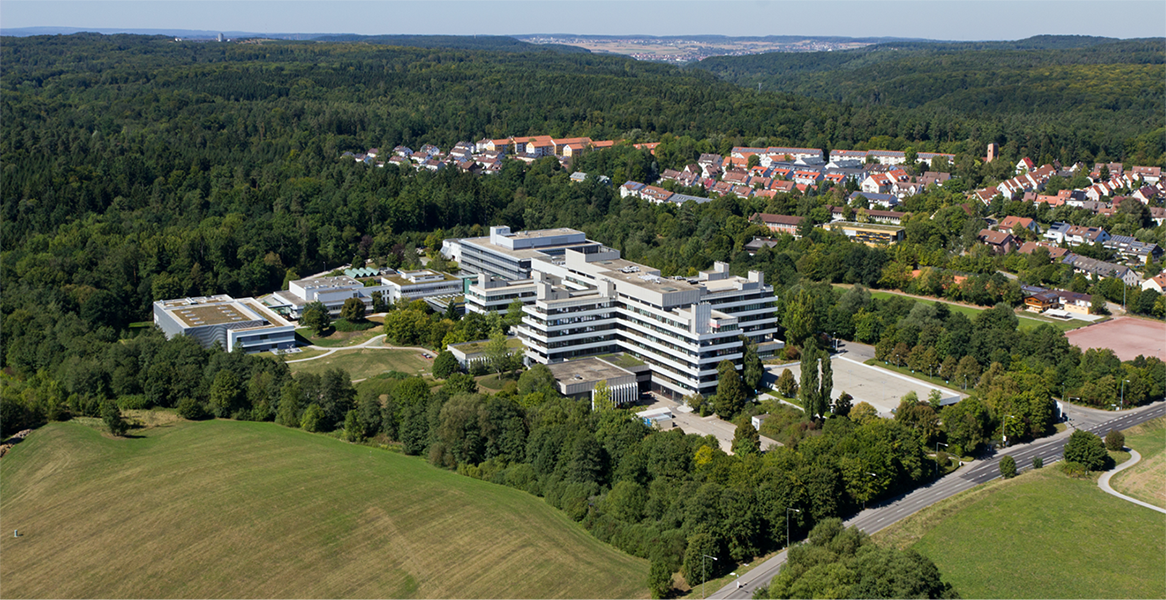
Research into intelligent systems
The interdisciplinary cooperation at the newly reoriented Institute increases the potential of its new locations in Stuttgart and Tübingen, where a new Institute building is constructed and completed in 2017. The mandate of the MPI for Intelligent Systems is described in an MPG press release dated 15 February 2011: “Intelligent systems can optimize their structure and properties in order to function successfully within a complex, partially changing environment. The innovative scientific concept combines research expertise in the fields of computation, materials science and biology, with scientists engaging in basic research and developing intelligent systems.
The new Institute is globally unique, since it is the first to combine software and hardware expertise in three sub-areas of intelligent systems – perception, action, and learning – under one roof. Machine learning, image recognition and robotics are studied in Tübingen, while so-called learning material systems, micro and nanorobotics, self-organization, haptics and robotic materials are researched in Stuttgart. Although basic research is the Institute’s primary focus, it also has considerable potential for practical applications in areas such as robotics, medical technology, and innovative technologies based on new materials.”

The Max Planck Institute for Intelligent Systems grows dynamically
Shortly after the MPI’s reorientation, the search begins for further Directors in the research field of intelligent systems. In 2014, Metin Sitti comes to Stuttgart from Carnegie Mellon University, USA, and establishes the Department of Physical Intelligence. In 2017, Katherine J. Kuchenbecker is appointed to the Institute as its second female Director. Kuchenbecker, who is an expert in the field of haptic perception, comes to Stuttgart from the University of Pennsylvania and establishes the Department of Haptic Intelligence. In 2020, she is followed by robotics expert and material scientist Christoph Keplinger, who moves to Stuttgart from the University of Colorado Boulder and sets up the Department of Robotic Materials. In 2021, the Institute’s anniversary year, Fairness in Machine Learning expert Moritz Hardt comes from the University of California, Berkeley, USA to Tübingen as its newest member.
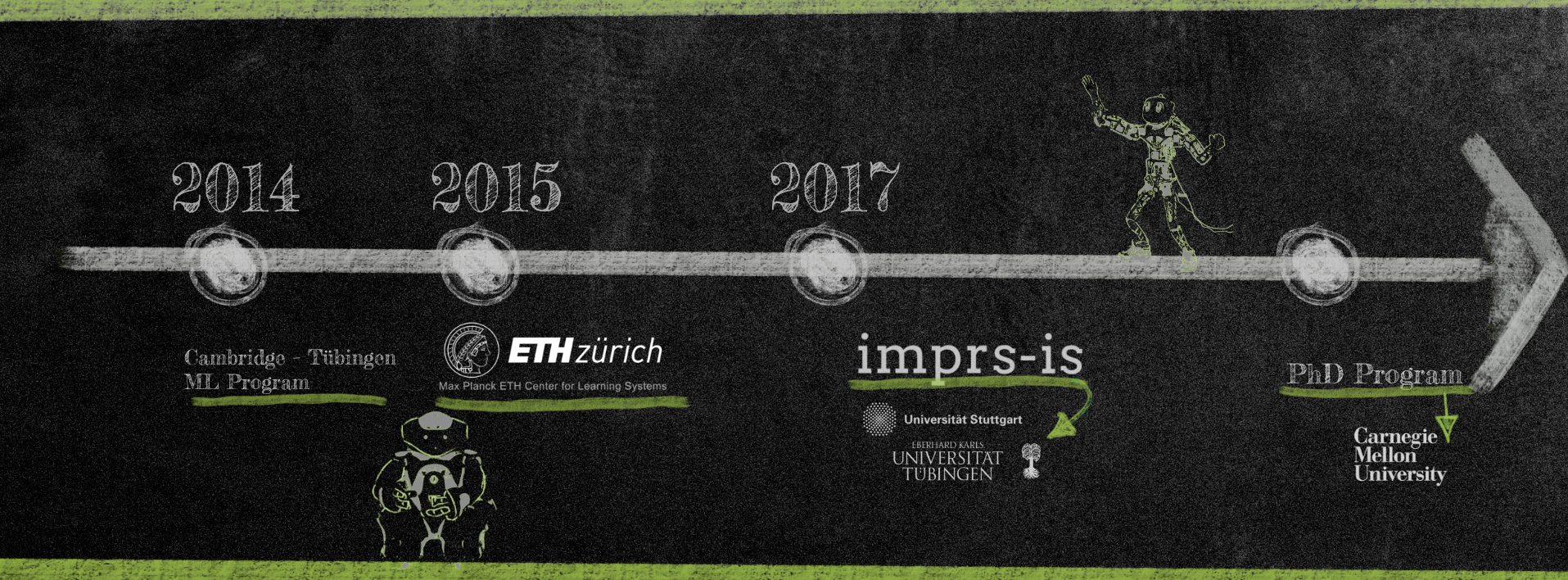
Support for junior scientists
Supporting junior scientists is a core element of the MPI for Intelligent Systems. In 2021, almost half of all the scientists at the Institute are working towards a doctorate, most of them as part of one of the four postgraduate programmes. This is another area in which international cooperation is important. In 2014, Bernhard Schölkopf establishes the Cambridge-Tübingen Machine Learning Program in cooperation with the University of Cambridge, UK. In 2015, the MPI-IS opens the Max Planck ETH Center for Learning Systems (CLS) in cooperation with the Swiss Federal Institute of Technology (ETH) in Zurich.
The MPI-IS and the Universities of Stuttgart and Tübingen found the International Max Planck Research School for Intelligent Systems (IMPRS-IS) two years later. Its spokesperson is Katherine J. Kuchenbecker, Director of the Haptic Intelligence Department at MPI-IS. A doctoral student programme initiated by the Director of the Department of Physical Intelligence, Metin Sitti, in cooperation with Carnegie Mellon University in Pittsburgh gets under way at the end of 2017.
The MPI for Intelligent Systems is part of a productive research and industry landscape in the heart of Baden-Württemberg. In December 2016, the Institute’s two locations form the core of Cyber Valley, one of Europe’s largest research consortiums in the field of AI. Its partners in science, industry and society include the Universities of Stuttgart and Tübingen, the Fraunhofer-Gesellschaft, the state of Baden-Württemberg, and corporations such as Amazon, BMW, Bosch, Daimler, IAV, Porsche and ZF. This close cooperation makes the Stuttgart-Tübingen region one of the leading hubs of international AI research.
The start of the Cyber Valley initiative is marked by the establishment of ten new research groups, an equal number of university chairs and of the IMPRS-IS. Outstanding researchers from all across the world carry out interdisciplinary research here, with particular emphasis on the areas of machine learning, robotics and computer vision. Basic research is combined with practical application. Cyber Valley is a byword for technology transfer and supports the founding of start-ups as spin-offs of the research work carried out at the MPI for Intelligent Systems and both universities.
Over the next few years, Cyber Valley sees new research laboratories set-up by industry partners in Tübingen and new research centres of national importance established at the academic institutions involved; these include new clusters of excellence and a competence centre for artificial intelligence. The MPI for Biological Cybernetics in Tübingen is an integral part of this development, and undergoes reorientation under its new Director Peter Dayan, an expert in artificial intelligence and neuroscience.
Competence Centre for Artificial Intelligence
In 2018, the MPI opens the Tübingen AI Center in cooperation with the University of Tübingen. It is one of five competence centres for machine learning (now referred to as artificial intelligence) funded by the Federal Ministry of Education and Research (BMBF).
Researchers in Tübingen continue to work on the development of robust learning systems. In the light of the revolutionary nature of this technology, their work also encompasses studies on potential abuses of artificial intelligence and the relationship between AI and ethics.
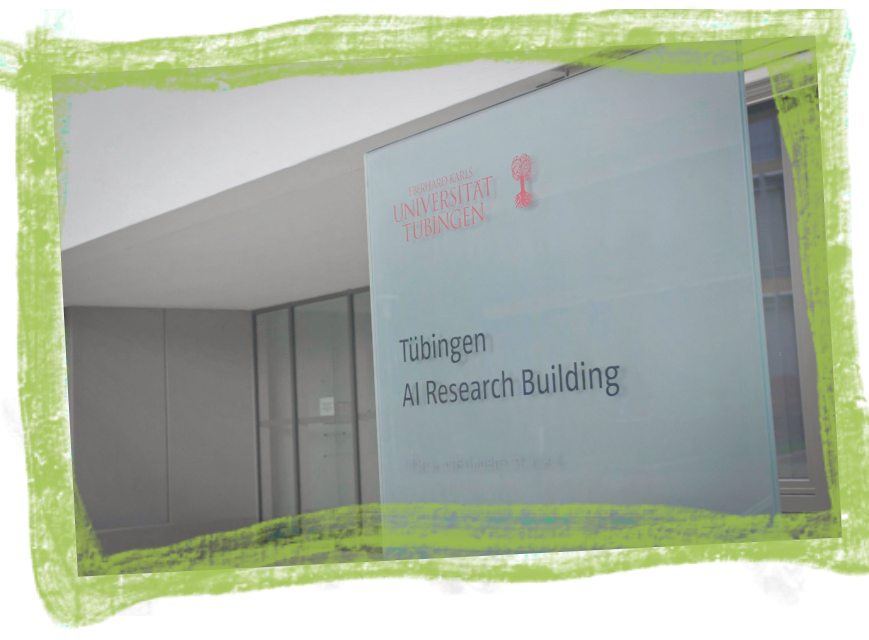

Women at MPI-IS
Gisela Schütz, who became the first female Scientific Member in 2001, is joined in 2017 by another female Director, Katherine J. Kuchenbecker. With eight occupied Departments, the proportion of women in management at the MPI-IS is currently 25 percent. Among the research groups, this figure is 28 percent. This is a good percentage for the natural sciences, computer and technology fields but also shows the need for women to receive purposeful support. The relatively small percentage of female postdocs (19 percent) and doctoral researchers (24 percent) in 2021 is to be improved by implementing the measures in the current gender equality plan.
The Athena Group, which was established in Stuttgart in 2017 and in Tübingen in 2018, is one example of the support available for female junior scientists and fosters exchange and networking between young female researchers at the Institute. In one of its seminar series, established female scientists talk about their experiences. A mentor/mentee programme assists junior female scientists with their career planning.
Strengthening Europe as a research hub
In 2018, Bernhard Schölkopf founds the European Laboratory for Learning and Intelligent Systems (ELLIS) in cooperation with other European researchers. This collaborative endeavour aims to strengthen the role of Europe in global AI research by connecting ELLIS locations.
The initiative’s primary focus is the field of learning AI. In addition to basic research, it promotes education and training. Its close cooperation with industry researchers acts as a catalyst for start-ups and technology transfer. In 2020, ELLIS opens 30 research units at 14 locations in Europe.

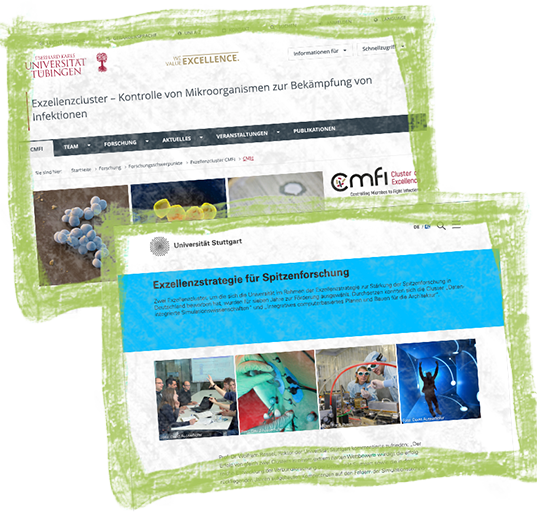
Excellence
In 2019, the close cooperation between the MPI-IS and the Universities of Tübingen and Stuttgart leads to the founding of four clusters of excellence. These government-funded projects stand for top-ranking international research and education at German universities and serve to strengthen Germany as a business location.
In Stuttgart, the MPI is involved in the clusters “Integrative Computational Design and Construction for Architecture” (IntCDC) and “Data-Integrated Simulation Science”. The projects in Tübingen are called “Machine Learning: New Perspectives for Science” and “Image-Guided and Functionally Instructed Tumor Therapies” (iFIT).
The MPI during its anniversary year
In its anniversary year, the MPI for Intelligent Systems consists of eight Departments – soon to be nine thanks to the appointment of Moritz Hardt.
The Departments directed by Gisela Schütz and Siegfried Dietrich originated in the MPI for Metals Research. Junior scientists with research experience spend five years working independently on their projects in numerous research groups with the support of their own teams. The MPI also employs technical and administrative staff and has a Scientific Coordination Office which provides centralized support for all Departments and research groups.
